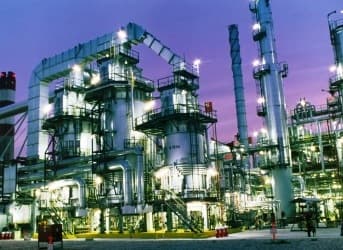When civil rights advocates grew restless because of President Richard Nixon's right-wing rhetoric on the issue of desegregation, then-Attorney General John Mitchell told them, ''Watch what we do, not what we say.''
Those following the hype over America's supposed newfound abundance of oil and natural gas would do well to follow that advice when evaluating what oil and gas company executives and their surrogates say.
When Royal Dutch Shell pulled the plug on its U.S. gas-to-liquids project recently, the company offered the same explanation it used when it shut down its oil shale project earlier this year: Shell sees better opportunities elsewhere. This explanation--much like the I'm-resigning-to-spend-more-time-with-my-family explanation--tends to deflect questions about why things aren't working out.
What's not working out for Shell is a planned $20 billion plant in Louisiana designed to turn natural gas into diesel, jet fuel, lubricants and chemical feedstocks, products typically produced by oil refineries. The plug was pulled, however, while the project was still in the planning stage.
Shell did actually say a little more about why it is abandoning the project in this almost inscrutable piece of corporate prose:
Related article: Shell and GE Team Up for ‘Age of Gas’
Despite the ample supplies of natural gas in the area, the company has taken the decision that GTL is not a viable option for Shell in North America, at this time, due to the likely development cost of such a project, uncertainties on long-term oil and gas prices and differentials, and Shell’s strict capital discipline.
Now, here's the same paragraph translated into simple English:
The plant is going to cost a lot more to build than we thought it would. Natural gas prices are going up and could easily make it uneconomical to produce diesel and jet fuel from natural gas when compared to making them from oil. And, we don't have unlimited funds to spend on everything we think of just to see if it works.
Shell CEO Peter Voser has voiced doubts about the so-called "shale revolution" in the United States (which refers to advances in drilling technology that have opened previously inaccessible shale deposits of natural gas and oil to exploitation). In fact, Shell took a $2.1 billion write-down on its shale assets in the United States. In lay terms, the company had to reduce the value of those assets on its balance sheet to reflect reality. The company also sold small tight oil fields related to shale deposits, fields that it no longer wishes to develop.
Voser said he still believes Shell's remaining $24 billion investment in U.S. shale gas and tight oil will "be a success story for Shell." Three-quarters of that investment is devoted to natural gas from shale. But, Voser added that the potential for natural gas and oil from shale elsewhere in the world has been "a little bit overhyped" citing concerns specifically about Europe.
Now, because this rhetoric is coming from an oil industry CEO, we can assume that he is walking the line between saying things which will get him removed from the invitation lists of his fellow oil executives' cocktail parties--things otherwise known as the awful truth--and misrepresenting the facts to shareholders, which would get him into trouble in other ways.
Related article: China Increases Purchases of LNG on Spot Market
But abandoning the gas-to-liquids plant speaks much more loudly than Voser's actual remarks. It means Voser expects that natural gas prices simply won't stay low long enough to make such a huge investment pay off. And, that means that he doesn't believe the hype about an ongoing glut of U.S. natural gas.
So, Voser directs Shell to abandon a gas-to-liquids plant, the profitability of which would be destroyed by high prices for the natural gas which the plant must purchase. At the same time, he has Shell retain most of its shale gas wells, a move which only makes sense if he expects U.S. natural gas prices to go higher. And, those prices will only go higher if there is increased demand or reduced supply, or a combination of both.
It's not hard to figure out the meaning of what Peter Voser is doing. But it is understandably difficult to shut out the constant din of abundance stories sponsored by the industry and its well-financed public relations machine--that is, until you understand that it's not what the industry says that's important, but what it actually does.
By. Kurt Cobb

















